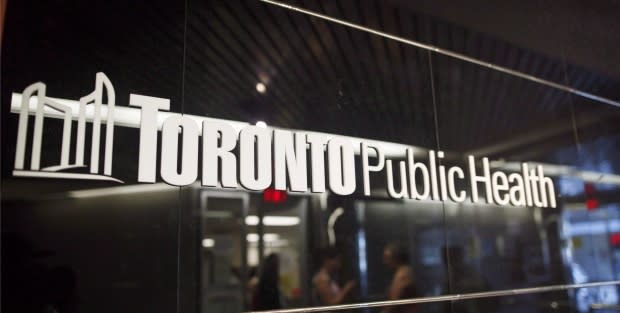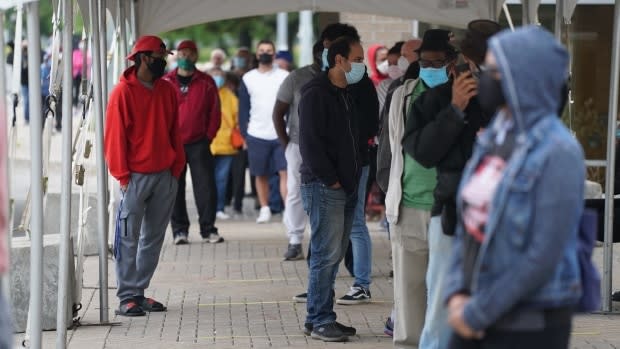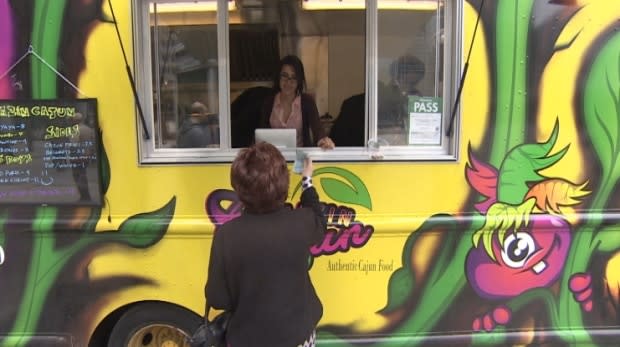Toronto still seeing about 150 new cases of COVID-19 daily, medical officer says
Toronto is continuing to see roughly 150 new cases of COVID-19 every day, says the city's medical officer of health.
Dr. Eileen de Villa said the number of new daily infections means that the work of investigating cases and identifying contacts is "especially important" to slow the spread of the virus as the city gradually reopens.
"Case and contact management is critical to containing virus spread and keeping people in our community safe. It helps reduce the spread of COVID-19 at the individual level by identifying where someone may have become infected and who they, in turn, may have infected," de Villa told reporters on Wednesday.
"This data also helps to determine how COVID-19 is spreading through the community to inform our public health strategies to contain the disease."
De Villa, who spoke at the daily COVID-19 media briefing at city hall, reported that Toronto had 139 new COVID-19 cases on Wednesday, with cumulative total of 11,652 cases.
There are 378 people hospitalized, with 83 in intensive care units. A total of 845 people have died of COVID-19 in Toronto.
A total ot 8,948 people have recovered, an increase of 165 from Tuesday.
Once Toronto Public Health (TPH) receives a report of a positive test of COVID-19, officials obtain contact information of the infected person and a skilled investigator takes a history of all his or her activities and contacts in the two weeks before he or she began to show symptoms, she said.
People with positive tests are asked about symptoms, when they appeared, what activities they did, what locations they visited, and with whom they came in contact in the two week period, she added. They are also asked if they have gone into isolation and how they may have contracted the virus.

TPH follows up daily with people who have tested positive by calling them and it identifies anyone who may have been infected as a result of contact with the cases.
De Villa said if an infected person has many close contacts over a number of areas, the contact identification takes longer. In January, at the beginning of the outbreak, people were moving around more and that may happen again as the city begins reopen, she said.
On average, TPH usually manages about 45,000 cases of all communicable diseases in the city a year. But in the last three months, there have been nearly 12,000 COVID-19 cases in Toronto alone, in addition to other communicable diseases.
Initially, TPH had 50 staff working on case and contact management. Now it has more than 550. It has also joined forces with the Registered Nurses' Association of Ontario, the University of Toronto, other local public health departments, and other agencies to increase the workforce in this area by 200, she said.
And with the help of the city, TPH build a new case management system in eight weeks to track test results, hospitalizations and deaths better.
Outbreak has been 'unprecedented' in Toronto
"This has been a truly unprecedented outbreak for us at Toronto Public Health. Never before have we had to manage so many cases, so rapidly," de Villa said.
"Indeed, this is the largest and longest case and contact management effort in our history and I believe in Canada's history. As such, we have struggled at times to keep up with the workload because the current public health systems and processes, and the ways they connect with the broader health system were not designed for a pandemic of this scale."

From May 27 to 29, TPH was able to contact nearly 90 per cent of new COVID-19 cases within 24 hours, she said.
The Ontario government has set a benchmark for the 34 local public health units in the province to have 90 per cent of new COVID-19 cases contacted by public health staff for case and contact tracing within 24 hours of receiving a test result, the city said in a news release on Wednesday.
Street food vendors permitted to operate as of Wednesday
Mayor John Tory announced that licensed street food vendors, including food trucks and ice cream trucks, are allowed to resume operations in the city as of Wednesday. All vendors will be expected to maintain physical distancing requirements and provide health and safety measures for their staff, Tory said.
"This change comes just in time for the summer vending season," Tory said.
People who buy food from the trucks should maintain two metres of distance from others while waiting in line.
De Villa said the risk of COVID-19 is "significantly reduced" when people are outdoors.
The city has licensed 177 non-motorized food carts and 325 motorized refreshment vehicles, including 75 hot dog carts.
As for restaurants and bars, the city is working with the province on what Tory calls a "patio plan" that would allow establishments to increase the number of tables outside while allowing patrons and staff to maintain physical distancing. Details are to be released soon, he said.
"We are working with the province and public health to figure out both a timeline and under what conditions these businesses can reopen their dining areas safely and we are continuing to work on a plan to help open up more patio space for restaurants and for bars," Tory said.
"We are in active discussions with the province on some of the regulatory aspects of that patio plan and anticipate providing more details to you in the next few days."

City to expand ActiveTO this weekend
Tory said the city will close sections of three major roads this weekend as part of its ActiveTO program. The closures mean more than 10 kilometres of roads will be available for walking, running and biking. The Lake Shore Boulevard East closure will be extended east to Leslie Street.
ActiveTO gives residents a chance to exercise outdoors while still maintaining physical distancing.
The following roads will be closed from this Saturday at 6 a.m. until this Sunday at 11 p.m.:
Eastbound lanes of Lake Shore Boulevard West from Windermere Avenue to Stadium Road. As a result, the eastbound Gardiner Expressway off-ramp to Lake Shore Boulevard West (exit #146) will be closed.
Eastbound lanes of Lake Shore Boulevard East from Leslie Street to just south of Woodbine Avenue to Kew Beach Avenue.
Bayview Avenue from Mill Street to Rosedale Valley Road.
River Street from Gerrard Street East to Bayview Avenue.

GTHA mayors, chairs call for more mobile testing
Meanwhile, mayors and chairs from the Greater Toronto and Hamilton area, who met this week, are calling on the provincial government for more widespread use of mobile testing to slow the spread of COVID-19.
Tory said the mayors and chairs also discussed the state of municipal finances and the issue of reopening regionally.
"Now, we need the federal and provincial governments to move quickly to address the urgent financial situations cities face. Time is of the essence," the mayors and chairs said in a news release.

